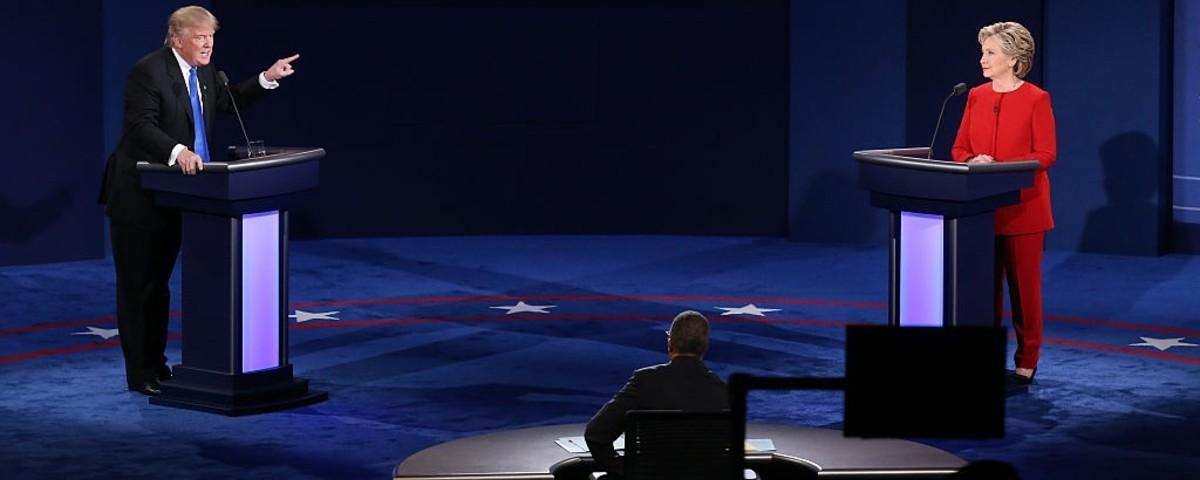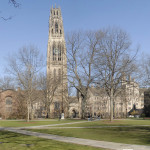by Janis Jin (Contributing Writer)
The Women’s, Gender and Sexuality Studies program and Yale Center for the Study of Race, Indigeneity and Transnational Migration co-sponsored a panel discussion on Wednesday, September 21, called “Election 2016: An Intersectional Discussion with Yale Faculty.” Moderated by WGSS Professor Inderpal Grewal, the event featured five different Yale professors across various departments and disciplines: Laura Wexler (WGSS), Joe Fischel (WGSS), Chris Lebron (African American Studies), Albert Laguna (American Studies), and Linn Tonstad (Divinity School).
Wexler began the panel discussion by speaking about conflicts between masculinity and femininity in the public sphere. To discuss the relationship between images and the public’s perception of women, Laura Wexler used photographs of Hillary Clinton to demonstrate the ways in which Clinton’s gender influenced perceptions of her presidential capabilities.
She then asked audience members to consider how relationships between gender and power create an image of who we see as the “ideal” American president. “We have an image of what a male is supposed to look like when he fills that space,” Wexler said, “but we don’t have an underlying typology that democracy can use to project the image of a female president.”
Clinton’s gender was a theme that continued to be touched upon throughout the panel discussion. Joe Fischel, however, deviated from the subject of Clinton to explore a less-often discussed topic: Donald Trump’s gender.
“I wish we talked more about Donald Trump’s gender,” Fischel admitted. He linked Donald Trump’s success in securing the Republican nomination to the idea of toxic masculinity, and cited Trump’s feuds with Rosie O’Donnell and Anderson Cooper as rooted in sexist and homophobic sentiments.
Speakers also discussed relationships between the election and different ethnic and racial communities. Fischel described Trump as being a threat to young queer and trans folks of color, speaking to the panel’s overarching theme of intersectionality.
Chris Lebron, professor in African American Studies, spoke on the state of Black America, declaring that “for Black Americans, there is no winning in this election. There is only ‘losing less bad.’” Thinking about the Black lives lost to the racist police state even in the last week alone, Lebron described African Americans as a perpetually endangered community in the United States. Though he echoed the other panelists’ strong condemnation of Donald Trump, he was also reluctant to support Clinton, believing that she too would enact policies harming Black life in America.
Albert Laguna, American Studies professor and Director of Undergraduate Studies for the Ethnicity, Race & Migration major, followed Lebron’s sentiment of hesitancy to support Clinton. As a scholar who specializes in Latino Studies, Laguna cited Clinton’s “hawkish” foreign policy and involvement in the Puerto Rican debt crisis as markers of the violence her presidency would incite in Latin America and on Latinos in the U.S. He also discussed the history of the Latino vote, and noted divisions within the voting bloc using anecdotes of his own Trump-supporting family members.
Linn Tonstad offered a unique analysis of the election as a national account of religious and moral rhetoric. “When race and religion get together,” Tonstad said, “it can be one of the most toxic combinations that we encounter.”
Tonstad explored the “lesser of two evils” rhetoric that has been surrounding the 2016 election and connected it to narratives of Christian persecution. Whether it is the left arguing that Trump is connected to the “evil of racism,” or the right arguing that Hillary is committed to the “evil of murdering unborn children,” this election, Tonstad said, can be read as an intense moralization of the act of voting. Tonstad ended by asking how voters create a different story in politics – one that transforms excessive focus on moralization into a discussion of policy and the “real ethical issues.”
Professor Grewal moderated a Q&A session between the panelists and audience members to close the event. Students and faculty asked questions on topics ranging from ableism in Donald Trump’s rhetoric, to Clinton’s relationship with the media.
Freshman Sohum Pal said that overall the election panel was a great event. He concluded, “I was glad to get a more academic look at the election and all of the political anomalies that it contains.”



